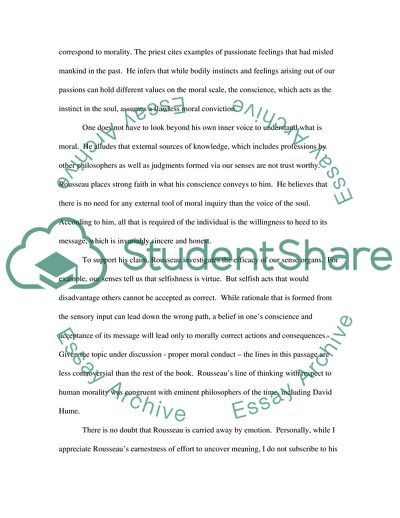Cite this document
(The French Revolution: The Profession of Faith by Rousseau Assignment, n.d.)
The French Revolution: The Profession of Faith by Rousseau Assignment. https://studentshare.org/philosophy/1704577-the-french-revolution
The French Revolution: The Profession of Faith by Rousseau Assignment. https://studentshare.org/philosophy/1704577-the-french-revolution
(The French Revolution: The Profession of Faith by Rousseau Assignment)
The French Revolution: The Profession of Faith by Rousseau Assignment. https://studentshare.org/philosophy/1704577-the-french-revolution.
The French Revolution: The Profession of Faith by Rousseau Assignment. https://studentshare.org/philosophy/1704577-the-french-revolution.
“The French Revolution: The Profession of Faith by Rousseau Assignment”. https://studentshare.org/philosophy/1704577-the-french-revolution.


